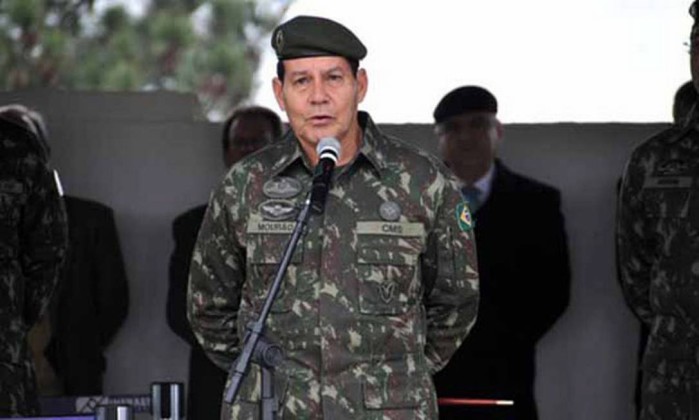
The relationship between civilians and militaries in Brazil will never be the same, after the episode of the statements of General Antonio Hamilton Martins Mourão. I would not like to hit this key again, otherwise we will become repetitive and even boring, because of the editorials already published, addressing the subject. But two articles recently published by the Folha de São Paulo newspaper, one by political scientist Jorge Zaverucha, a professor at UFPE, and another by journalist Elio Gaspari, have put some new facts to the episode, which has prevented us from writing about the subject. These "new facts" are, in fact, old because they refer to the eternal difficulty of relations between civilians and the military in Brazil, which in principle referred to the concept of democratic democracy, coined by Argentine political scientist Guillerme O ' Donnell, in decades past, having the experiences of democracy in Latin America as a reference. In the concept of the political scientist, roughly speaking, it is as if representative democracy works, but on the greenhouse of authoritarian enclaves and residues that can emerge at any moment.
The text of Professor Jorge Zaverucha makes reference to article 142, maintained in the citizen constitution promulgated in 1988, by exigency of the military, creating the circumstances in which the Armed Forces could intervene in the political process, under the pretext of the guarantee of the law and the order. This article, in addition to raising enough ambiguity, opens the "argument" for authoritarian adventures. This is, of course, one of those authoritative loopholes kept in the Magna Carta.The curious thing is the professor's observation about the reaction of the Army minister at that time , General Leônidas Pires Gonçalves, when civilians sketched a counterpoint to maintaining the article, so to speak, "permissive." Leonidas would have threatened to do away with the entire process if the article were withdrawn, civilians acquiesced, or more precisely, the military chiefs, maintaining this "device" very dangerous.In both the speech of General Antonio Hamilton and in the speech of Army Commander-in-Chief, General Eduardo Villa Boas, references to circumstances in which military intervention might occur refer to a prediction It's funny, is not it?
The article by journalist Elio Gaspari goes back to some recent episodes of this somewhat troubled relationship between civilians and the military in Brazil. But as the game can also take place between hard-liners and moderate soldiers, as Jorge Zaverucha taught, Gaspari refers to the episode of the removal of the then-all-powerful army minister during the 1964 military dictatorship, Sylvio Frota, of the hard-line. Gaspari does not mention some nuances of this process, but, as a good strategist, Geisel prepared the whole terrain for a possible "reaction" of the military. Invited to his office in Brasília, without reference on the subject to be treated, Sylvio received the news of his resignation from the command of the Army. She scratched herself, threatened to sketch a reaction, but her troops were in disarray, at home, enjoying the holiday, at a family barbecue. It was a holiday in Brasilia. Sylvio, As a good soldier, knew that a general without division is nothing.
Former President Dilma Rousseff has always been accused of being too conciliatory, resilient, and conciliatory. But in a demonstration considered undue, carried out by the same general who now made such statements in a speech, General Antonio Hamilton Martins Mourão, adopted a harsh measure regarding the indiscipline of the military, away from the Southern Command, the most important among the army garrisons. Dilma Rousseff's measure was more effective in maintaining the subordination of military power to civilian power than the "measures" adopted in relation to this last statement of General Mourão. Strictly speaking, nobody really knows what these measures were personally handled, he said, between the "Gauchão" and Army Commander General Eduardo Villas Boas. The concrete fact, as Gaspari notes, is that civilians "blinked." And that's not good at all.

Nenhum comentário:
Postar um comentário